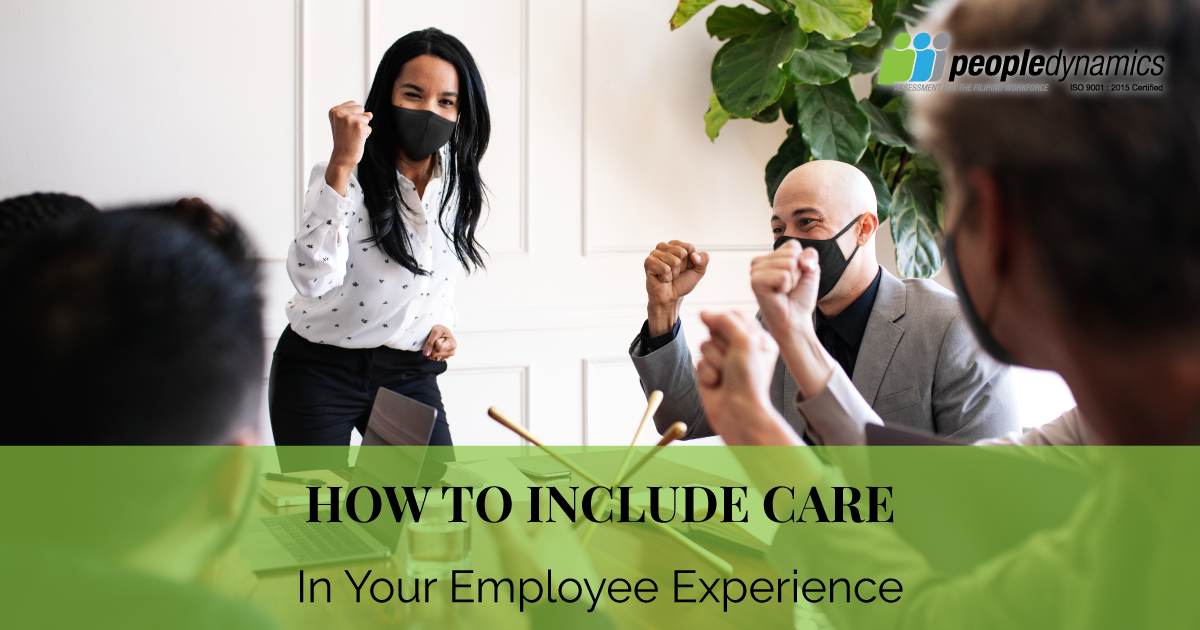“In a world where money is no longer the primary motivating factor for employees, focusing on the employee experience is the most promising competitive advantage that organizations can create.” These words are from Jacob Morgan, a best-selling author, keynote speaker, and futurist.
And isn’t it true? The workplace is no longer an employer-centric world, but an employee-centric one. Positive employee engagement and experience bring a lot of benefits to an organization. It’s the key to employee performance and even plays a huge role in retention. And to set up an exceptional employee experience, you need to include care in it. But how could you do so?
How to Include Care in Your Employee Experience
Create a culture of inclusivity
An organization is diverse. And with that diversity comes a challenge of ensuring that the members of your company feel that they belong—that they feel included. This is where having an inclusive culture comes in.
When you create a culture of inclusivity in your organization, you show your employees that no matter who they are, you will treat them as an integral part of your company and that you value them.
So, how can you create a culture of inclusivity? In a previous blog post, we shared four things you could do:
- Identify first where you currently stand.
- Educate your leaders about diversity.
- Communicate continuously.
- Fulfill the requirements—employees are treated with respect, employees are valued for their strength, and leaders do what is right.
Take steps to enhance safety and security
In Abraham Maslow’s Hierarchy of Needs, right after physiological needs is the need for safety and security. So, to include care in your employee experience, you have to fulfill your team members’ need for safety and security.
One thing you could do is to create a safety program for your organization. In the Philippines, natural calamities are expected and inevitable. The country experiences an average of 20 typhoons annually, and, as part of the Pacific Ring of Fire, also experiences frequent earthquakes and has numerous active volcanoes. Having a safety program will ensure that when calamities do strike, you have procedures in place that can help keep them out of harm’s way.
Employees also feel cared for when you, their employer, take steps to prevent harassment of any kind from happening in the workplace. Sexual harassment, for one, is more common than you think. According to a 2016 survey by the Social Weather Stations (SWS), three out of five women have experienced sexual harassment at least once in their lifetime. Statistics like this are more common in women’s perspectives, but you can’t dismiss that men also experience them. And while there’s a law aiming to protect your employees from situations like this, you having company policies in place further protects them—making them feel that you care about them.
Care for your employees’ wellbeing
Employee experience is a holistic model. This means that for it to be exceptional, you also have to care about their wellbeing.
It’s no secret that health affects work and that work affects health. That’s why, keeping them healthy is crucial, especially in times of crisis. And it’s not just physical health, but also mental health. Mental health struggles and disorders are more prevalent than you think. According to the Philippine Statistics Authority, mental illness is the third most common form of morbidity in the country. And, in a 2019 statement by the Department of Health (DOH), they disclosed that 3.3 million Filipinos are suffering from depressive disorders.
Implementing wellness programs can help you instill habits for your employees to improve their physical health. At the same time, it’s also critical that you support mental health in the workplace.
Provide a meaningful working experience
At the end of the day, your employee is your employee because they work for you. But, as the first part of the quote from Jacob Morgan above says, money is no longer the primary motivating factor for your employee. Other things could replace money, such as having meaningful work.
When you provide a meaningful working experience to your employees, you show them that you value and care for them. It also means that you trust them to be able to do the assigned tasks. And, since it resonates with them, they find more satisfaction and are more engaged in their work.
The challenge of employee experience is immense. After all, it encompasses a person’s entire lifecycle in your organization—from recruitment to departure or retirement. And showing your employees that you care for them does more than you think and shouldn’t be a once-in-a-while thing. That’s why you should include it in your employee experience.




